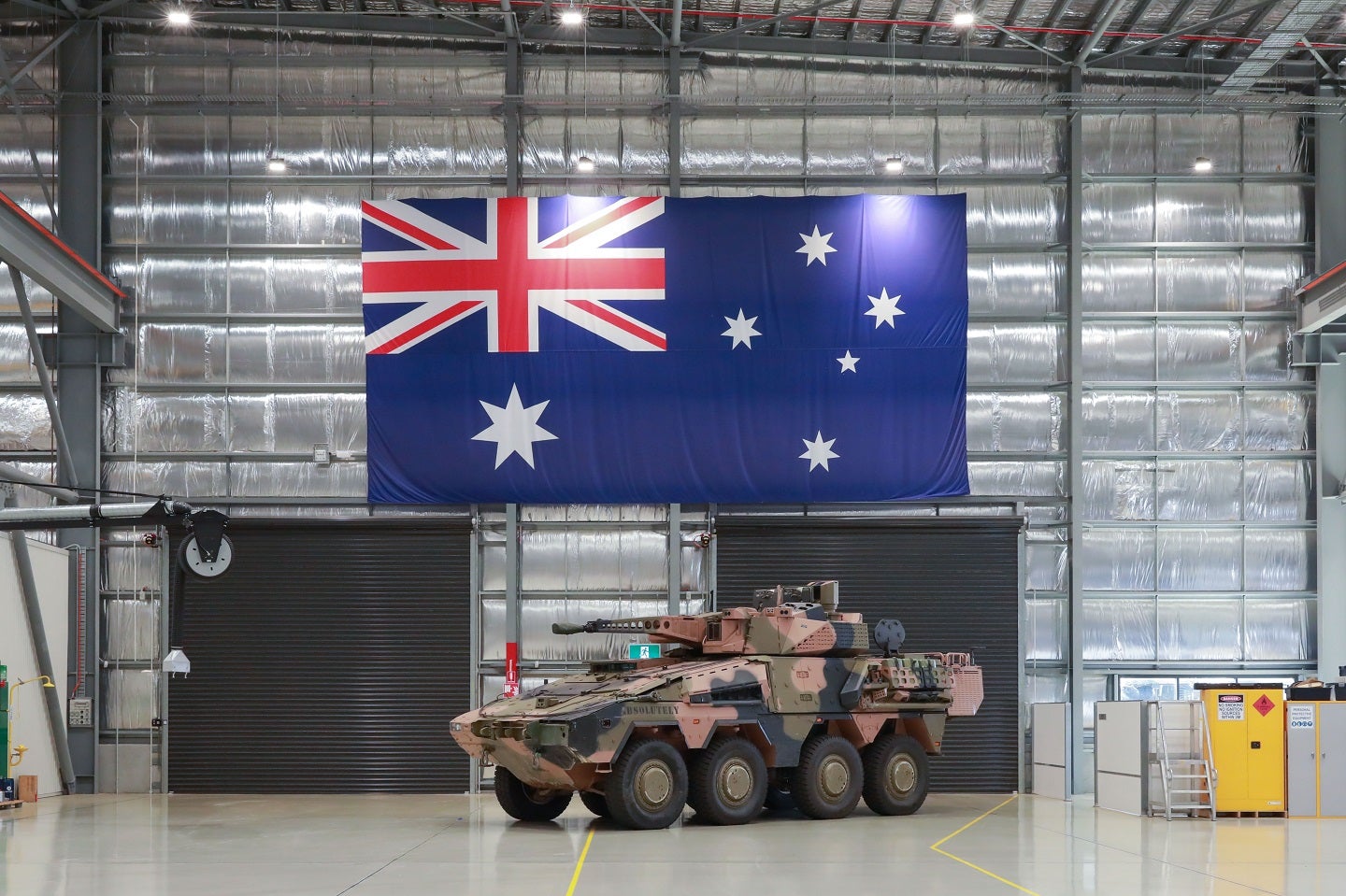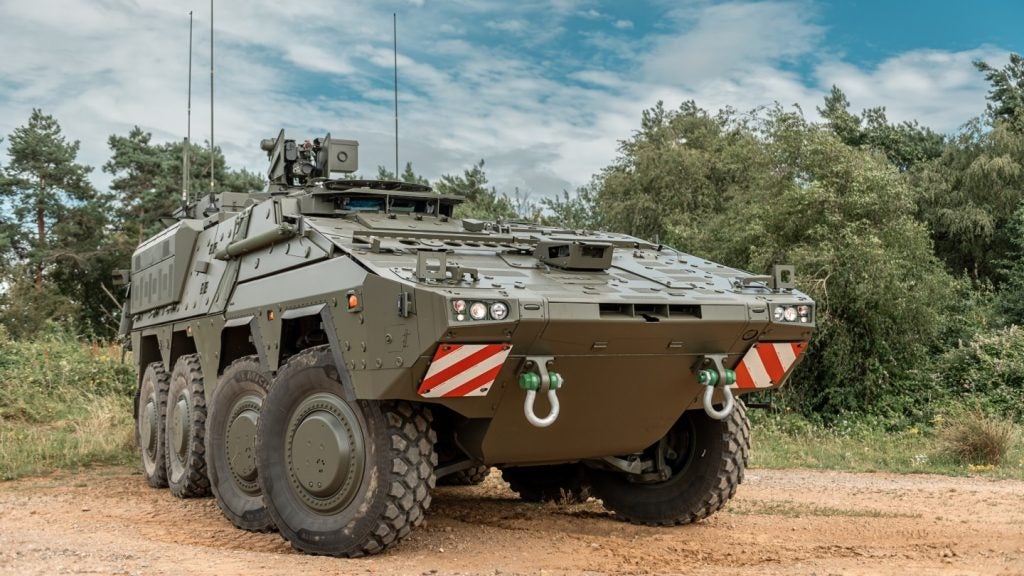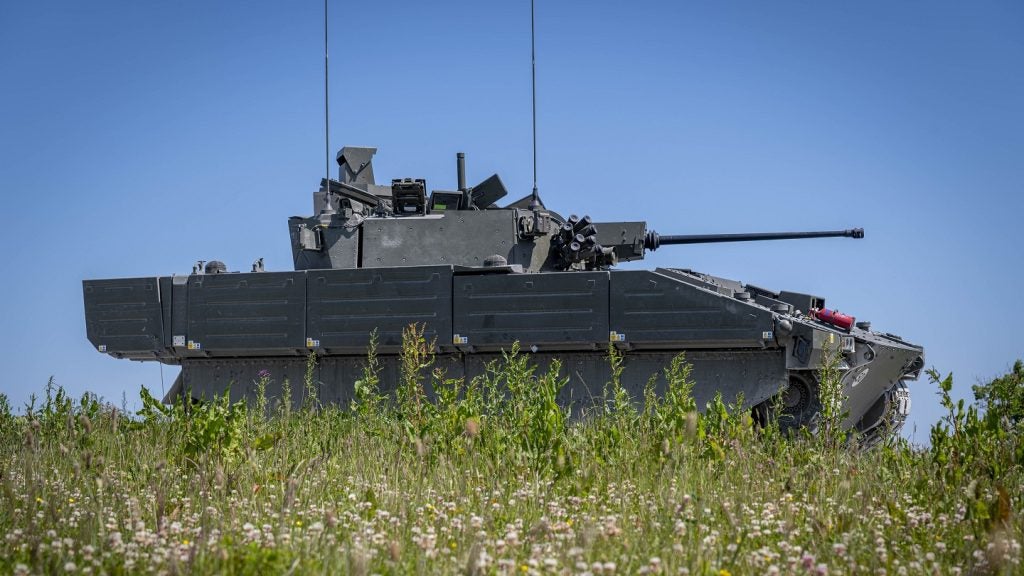
A curious business arrangement has emerged in which the German defence firm Rheinmetall will produce more than 100 Boxer armoured fighting vehicles in Australia for the German Bundeswehr.
Signed on 23 March 2023, a letter of cooperation was devised to kickstart formal negotiations between the German and Australian authorities, with Rheinmetall to establish appropriate legal and commercial arrangements for the deal.
The letter was signed in Canberra by Pat Conroy, the Australian Minister for Defence Industry, and Thomas Hitschler, the German parliamentary state secretary in the German Ministry of Defence.
The negotiations have since reached a successful conclusion as the formalised deal was announced on 3 April. Work will be performed at Rheinmetall’s Military Vehicle Centre of Excellence at Redbank in Southeast Queensland. Production will occur alongside the Boxer combat reconnaissance vehicles currently being produced for the Australian Defence Force (ADF).
The Australian Boxer Reconnaissance variant
The “schwerer Waffenträger Infanterie” (sWaTrInf, for short) is based on the Australian Army’s Boxer reconnaissance vehicle.
This is a proven 8×8 combat vehicle equipped with a reconnaissance vehicle mission module including the two-man Lance turret. Its main armament is the Rheinmetall MK30-2 ABM automatic cannon, which also features in the German Puma infantry fighting vehicle.
In the long term, the German armed forces intend to procure more than 100 Boxer sWaTrInf to replace the current “Wiesel” (weasel) to serve as a direct tactical fire support platform for its infantry units. Delivery is scheduled to begin in 2025.
“Rheinmetall in Australia has more than 900 staff, high-tech skills and an established production plant that includes vehicles, armour and electronics manufacturing at Redbank” to support the production of the German boxers Nathan Poyner, managing director of Rheinmetall Defence Australia stated.
Australian defence industry
We can expect this defence cooperation to be the integral business venture that props up Australia’s defence industry on the world stage.
In speaking of the potential export order, John Abunassar, head of Rheinmetall’s Vehicle Systems division, noted trust placed in the German defence firm and the opportunity the cooperation presents to Australia’s ambitious defence industry development.
“The opportunity would be one of the largest Australian defence exports in the nation’s history, and support Rheinmetall’s vision to build and grow Australia’s defence industry capability as well as integrating it into the Group’s global supply chains,” Abunasser stated.
It is concerning that Australia has hitherto struggled to maintain a consistent defence consumer base due to the great distances that its exports would need to traverse. According to GlobalData more than 35% of Australian exports, including minerals, go directly to China as of 8 March 2023.
Australia’s defence industry has seen significant growth as the People’s Republic of China takes an increasingly aggressive encroachment policy against its neighbours across the Indo-Pacific region, with militaries ramping up their defence procurement programmes to modernise equipment and maintain a state of readiness.
This deal follows a string of outsourcing contracts and agreements that bolster Australia’s defence industry as the ADF seek to indigenise defence production in the country. Around a month ago Australia had managed to coax MBDA, a leading European missile producer, to shore up the country’s Guided Weapons and Explosive Ordnance enterprise, which was established by the ADF in 2021.
Environmental implications
Of course, countries sourcing Australian products face the problem of increasing their carbon footprint. So, on the surface, a German defence firm outsourcing the production of their armoured fighting vehicles across the world, only to export them to their native country, appears to be an strange agreement.
Rheinmetall’s latest ESG Reporting 2022 announcement asserts: “It is a material objective for us to reduce energy consumption and increase energy efficiency as far as possible through stringent processes in day-to-day operations within the context of that which is technically feasible”.
Abunasser’s notion that the “German Boxers to be built at [their Redbank facility] will be modelled on the Australian Boxer Reconnaissance vehicle variant” does not seem to be a sufficient excuse that trumps its energy-efficiency commitments.
Just as digitalisation and data-sharing become an inherent part of military capability, surely the same can be said for business as the technical details of the Australian Boxer variant could become available to the firm’s headquarters in Dusseldorf.







